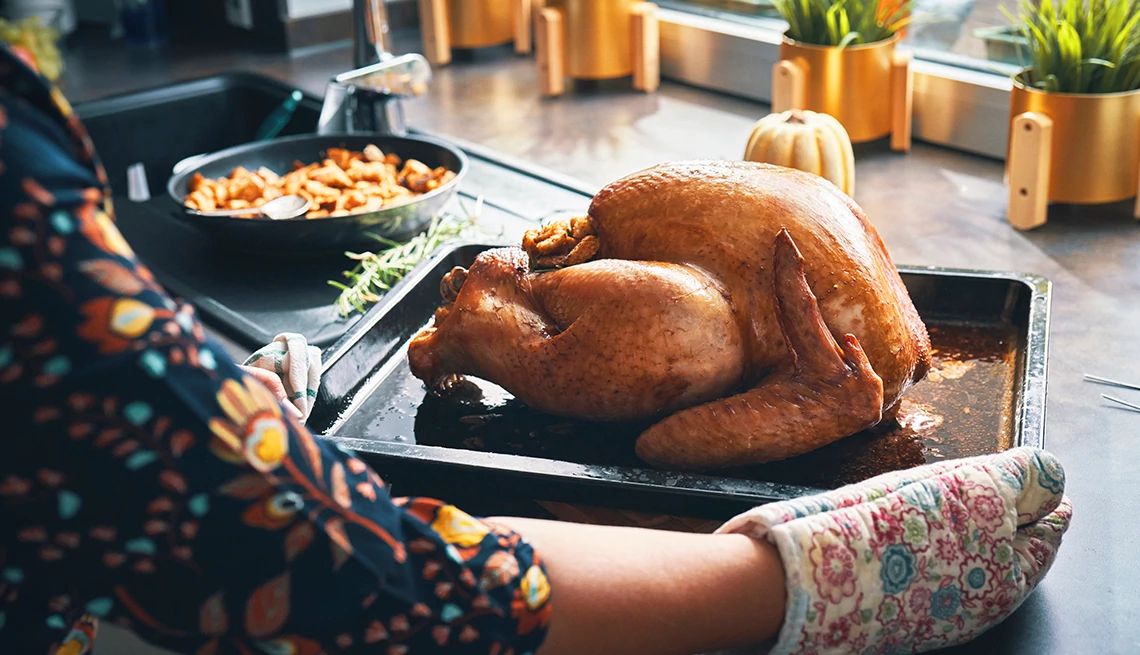AARP Hearing Center


Almost everyone has a favorite Thanksgiving side dish or dessert, but the one staple most people look forward to is the turkey. About 46 million birds are cooked on Thanksgiving and another 22 million are served on Christmas, according to the National Turkey Federation.
But since most home chefs don’t routinely cook whole turkeys, sometimes simple mistakes can lead to foodborne illnesses — not to mention a bird that doesn’t taste so good. Improper handling and undercooking are the most common reasons people get sick from chicken and turkey, according to the Centers for Disease Control and Prevention (CDC). This can be especially harmful to older adults, who are more susceptible to severe illness from food poisoning.
“Older adults [should] be even more cautious about not consuming raw foods or undercooked foods and avoid cross contamination,” says Brigette Gleason, medical epidemiologist at the CDC. “So following basic food safety principles is even more important in that age group.”
Take note of these six tips to properly cook your turkey this holiday season.
1. How to thaw your turkey safely
You should never thaw your frozen turkey by leaving it on the counter at room temperature. In fact, no food should be left out in what is called the danger zone — between 40 and 140°F — for more than two hours, because this is when bacteria grows rapidly.
Instead, follow one of these three ways to safely thaw your turkey, according to the U.S. Department of Agriculture (USDA):
Refrigerator thawing
Defrosting in the refrigerator is the safest method. Plan for one day of thawing for every 4–5 pounds of turkey.
- For example, a 16-pound turkey will take about four days to thaw.
- Once fully thawed, the turkey can be kept in the refrigerator for one to two days before cooking.
Cold-water method
Leave the turkey in its original packaging and place it in a sink or large container filled with cold water.
- Change the water every 30 minutes to keep it cold and prevent bacterial growth.
- Allow 30 minutes of thawing time per pound. For a 16-pound turkey, this method will take about 8 hours.
- Cook immediately after it is thawed.
Microwave thawing
Refer to your microwave’s manual to confirm the recommended settings for defrosting.
- Remove all packaging from the turkey and place it on a microwave-safe dish to catch any juices.
- As a guideline, use 6 minutes per pound and rotate or flip the turkey several times during thawing.
- If the edges begin to cook, pause and let it rest for 5 minutes before continuing.
- Cook immediately once thawed.






































































More From AARP
Product Recalls and Consumer Safety
The latest alerts impacting your health and homeWhy You Should Eat Less Meat
Simple swaps that make a difference
Recommended for You